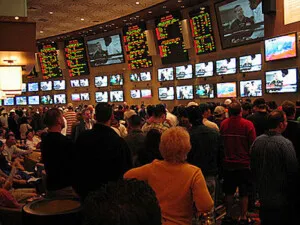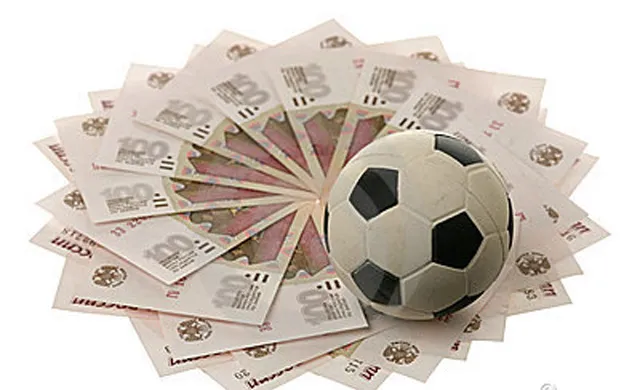“Must be bookies”.
“Bookies sure make money from this game”
“Football matches all controlled by bookies”
Three very popular phrases most football fans in Malaysia would hear week in week out when watching their teams in action. Why?
I am not claiming to know everything about this phenomenon – not even close. But during the course of my work and my social life, I’ve come to learn a few things about the “bookies syndrome”, from friends, footballers, coaches and officials.
Very often I ask myself this question, can bookies really affect the outcome of a football match?
For those of you who are not so familiar with the situation, let me attempt to explain this. It won’t be easy because betting and match-fixing are related but not the same thing. Betting is illegal in Malaysia – we all know that. But it happens every single day – we also know that. I’m not talking about the RM50 wager you make with your friend about who is going to win or lose a match, or predicting the final score. The most common betting system in Asia is one called the ‘Asian Handicap’ – where the bookies decide the odds of a given match, based on current form.
Let me give you an example – this might get technical. If Manchester United were to face Chelsea at Stamford Bridge tomorrow, chances are, the odds will be: Chelsea to give half a ball advantage to Manchester United. This means that if you bet RM1000 on Manchester United, you will be hoping for a draw or a win for the visitors. If the match ends in a 1-1 draw, you will win money BUT not all of it. There is something called ‘water money’ which works almost like a service fee to the bookies. You will end up winning probably RM800. But if the result was a 2-1 win to Chelsea, you would lose all of RM1000. Get it? Anyway, predicting the score is only one area you are allowed to bet on. You will have things like: who will score first, the final score will produce more than 4 goals or less, who will get the first yellow card – and even more trivial things like, which team will get the first throw in!
I know people who have won over RM10,000 over a weekend. I also know some who have lost that amount over one match!
Skeptics reading this article will argue: where’s the evidence, show me proof! I’m not trying to incriminate anyone nor am I trying to blame anyone. I am merely trying to understand how this phenomenon works, and share my experiences with you.
When I first started watching football, I had no clue about match-fixing and bookies. But so many adults I knew called me naive when I gave them my assessment of football matches, usually when the result was somewhat surprising. Their response, “every match is fixed”. I thought to myself, how? How is that even possible?
Millions of ringgit exchange hands between bookies and punters on a regular basis because of football betting. And you know the phrase ‘The House Always Wins’ commonly used in gambling, well more often than not, it’s spot on. Not only because punters over analyse schemes but also because of the ‘water money’ I was explaining about earlier. Imagine if 10,000 Malaysians placed bets on 1 match, even if 5000 of them won money, bookies would still be healthy because the payout is not full.

That cash was tempting, and the footballer reluctantly took it. In his mind, he tried justifying to himself – because he wasn’t asked to score an own goal or get himself sent off, he was just asked to not score. Yes, seems pretty harmless from his perspective. But this is an example of how far bookies would go to affect results. Yes, it’s a small assumption in the grand scheme of things – someone else could score, and his team might still win, but to the bookies, the probability of that team scoring as many as their first 6 matches, was lower. And where did the RM30,000 come from? Normally. the bookies anticipate a huge volume of bets in favour of the in-form team and do their best to swing the result in their favour. So that’s one way how the outcome of a football match can be affected by bookies.
It can work the other way around too. Players themselves are in such a powerful position, that they don’t need bookies to approach them – they can get a friend to place a huge bet on say, first team to be awarded a corner kick. And do everything they during the match, to make that happen. Their friend gets the money, they split it. Easy.
Here’s another true story. A former player once told me about his experience playing in a foreign league (in Asia). His team was performing well at the start of the season, but weren’t getting their salary on time – sometimes it would be 3 to 4 months behind. Ahead of one match, the team’s chairman walked into the dressing room and threw down an ultimatum – he demanded that his players lose their next match, or risk not getting paid. When I heard this, I was in disbelief. The chairman would then find a few unsuspecting people to place big bets on his team to lose this match with bookies. When the team lost, some of the money that was made would actually be allocated to his players’ salary. Everyone’s happy.
It’s really tough to comprehend how this would work in the top leagues. Because the obvious pattern is linked to the lack of money: Poor player needs money – easy target for bookies – bookies offer big amount of cash – player accepts cash – match result (slightly) manipulated. Chairman has no money to pay players’ salary – threatens players to throw away match – chairman bets on team losing – match result manipulated. First of all – access to a Premier League goalkeeper of any team, for example – is not as easy as getting in touch with a player of the lower leagues. Also, top league players earn more money and it would take a crazy amount to tempt them into manipulating a match. This makes it very risky from the bookies’ perspective too. And with the advent of worldwide TV coverage of big matches, it is probably easier to spot a ‘suspect’ vs someone playing in the lower league – because not many people follow it.

This brings up a different question – if you are given money to do something ‘trivial’ like: force the first corner of the match – is that considered a crime? Yes of course. Does it affect the match? Not really. But this is how betting has evolved. Because let’s face it, they don’t care about the result of any match, they’re probably not even football fans. They just want to make as much money as they possibly can. Is that considered match fixing?
So the next time when someone yells “bookie!” when you are watching a top flight match, and their team is on the losing end, ask them: who’s manipulating who?
Other posts by Nicholas Andrew John








